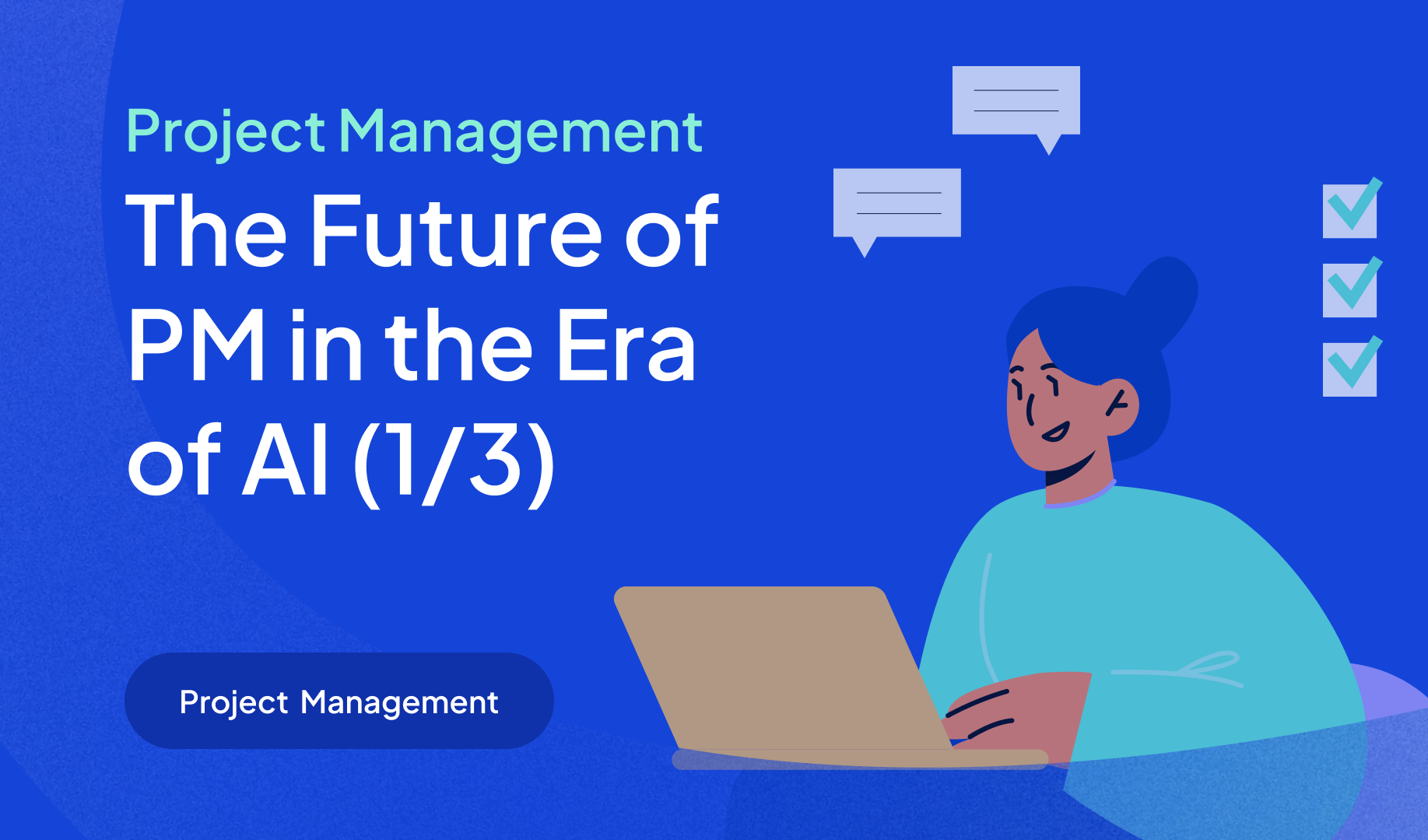The Future of PM in the Era of AI (1/3)

The future of Project Management in the era of Artificial Intelligence
We’ve all seen how Artificial Intelligence (AI) has become a trending topic worldwide. From ‘a new industrial revolution’ to ‘ the end of the world’, much has been said about how AI will impact our lives in the next few years. The future, however, is uncertain. That’s the beauty of it. What is undeniable, though, is that the nature of work is changing and, whether we like it or not, AI is not going away anytime soon.
In what ways is Artificial Intelligence affecting how we manage IT projects? What are the challenges of implementing AI-powered systems in a company? Is Artificial Intelligence a strategic ally or an imminent threat for Project Managers? All these questions will be addressed in this blog series.
Artificial Intelligence in Project Management
AI has shaken the field of Project Management. Traditional processes and methodologies are evolving. Technologies that were cutting edge a few years ago are now becoming obsolete. Most management tools have already incorporated AI in their latest features, and those who haven’t are being replaced by new AI-driven platforms. Here are a few examples of how AI is reshaping IT Project Management:
1. Streamlining processes and better planning
Assigning tasks, scheduling meetings, tracking progress, reporting, documenting: there are a lot of repetitive activities when managing projects. If you are a Project Manager, you know what I’m talking about.
Automation has helped us handle these routine processes with efficiency, allowing Project Managers to focus on more strategic, complex and relevant activities. Artificial Intelligence, however, has gone a step further. Intelligent tools are capable of analyzing large amounts of data and identifying correlations that humans would take an immense amount of time to notice. We can now understand what is happening beneath the automated processes, study them and learn from past experiences. We can start making data-driven decisions, minimize mistakes and, ultimately, better plan for future projects.
2. Risk Management
Unfortunately, flawless projects don’t exist other than in our dreams. There will always be unexpected events that affect our outcomes. That, in Project Management, is what we call ‘risk’. And risk may come in many flavors.
The good news is that the basics of Project Management include detailed guidelines for managing risk. So although we can’t predict when or how these future events will happen, we can prepare for them.
More good news: AI makes Risk Management easier and better. Firstly, by analyzing historical data we can identify risk indicators of previous projects and take preventive measures for future ones. Secondly, intelligent tools can monitor progress in real-time, acting as an early warning system for potential risk factors. This is one of the reasons why intelligent-driven risk estimations are replacing the traditional project health check systems. With AI we can intervene before risks become issues, and that, for Project Managers, is paramount.
3. Communication
Like in relationships, communication is crucial for the success of a project. And in this regard, AI-powered chatbots have gained a lot of popularity lately. Why? The answer is simple: they are effective, friendly, and more accurate each day.
Intelligent chatbots can provide status updates, help users navigate through functionalities, send notifications about project-related information, create tasks, schedule meetings, and more. It is all thanks to Natural Language Processing (NLP), the subfield of AI that focuses on the interaction between computers and human language. NLP can analyze text or speech, process it, and take intelligent actions like summarizing meetings, creating documentation or extracting product requirements from simple interactions with clients.
Many management applications have already incorporated chatbots to their core systems. Others, although not built-in, allow integrations with third-party tools to leverage them. One way or another, AI-driven chatbots are becoming essential assistants for collaborating and ensuring team alignment towards a common goal. Trust me, once you try them, you won't let them go.
So, there is a lot to gain from AI, but how easy is it to implement its usage in our projects? If you are interested in knowing the answer, stay tuned for the second part of this blog series…